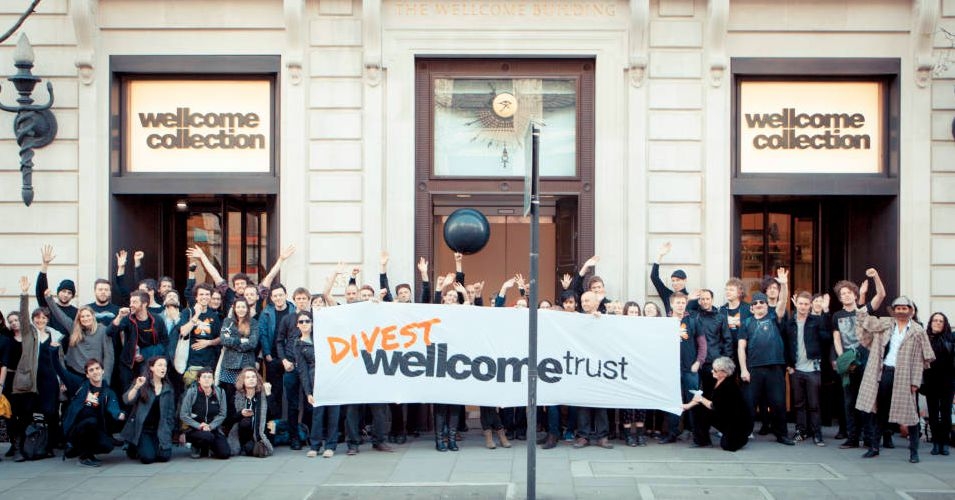Adding their collective voice to a growing campaign, nearly 1,000 health professionals from around the world on Friday released an open letter calling on one of the world’s largest health charities, the U.K.-based Wellcome Trust, to honor the principle of “do no harm” by divesting from the fossil fuels industry.
The letter notes that “divestment rests on the premise that it is wrong to profit from an industry whose core business threatens human and planetary health, bringing to mind one of the foundations of medical ethics—first, do no harm.”
Coordinated by the non-governmental health organization MedAct and the Climate and Health Council, the letter came five months after the Guardian initiated a campaign urging the world’s two largest charitable funds—the Wellcome Trust and Gates Foundation—to divest their endowments from 200 fossil fuel companies over the next five years to bring their practices in line with their stated commitments to combat climate change. Since then, over 226,000 people have joined in the pressure campaign.
But the Wellcome Trust has resisted the international call, with director Jeremy Farrarclaiming in March: “We consider individual companies on their merits, including the extent to which they meet their environmental responsibilities, when we decide whether or not to invest or stay invested. All companies engaged in fossil-fuel extraction are not equal. We combine this approach with active engagement with the companies in which we invest.”
Medical professionals from the U.S., U.K., Australia, Mexico, Colombia, Malaysia, and beyond called foul on Farrar’s argument, stating in their letter that “there is little or no evidence to suggest that this approach holds a realistic prospect of reducing global fossil fuel production sufficiently in the limited time available.”
“We believe a complete transformation of the energy sector is needed, driven by strong climate policies, and that divestment has greater potential to bring this about,” wrote the doctors, nurses, medical students, dentists, and researchers, including the editors of theLancet and the British Medical Journal. “Our primary concern is that a decision not to divest will continue to bolster the social license of an industry that has indicated no intention of taking meaningful action.”
“Indeed, many of these companies continue to use their considerable influence to delay political action, as tobacco companies have done previously,” they continued. “Shell’s lobbying against binding EU renewables targets and its decision to drill for Arctic oil, which cannot safely be burned, give additional cause for alarm.”
Their call follows a previous appeal from fifty top medical doctors and researchers to the Wellcome Trust and Gates Foundation, the latter of which has also refused to divest its holdings from the fossil fuels industry.
But despite the refusal of these two foundations, there are numerous signs that divestment is gaining ground. In response to grassroots campaigns, over 300 institutions worldwide have committed to divest from fossil fuels, with the United Church of Canada announcingTuesday it will heed the movement’s call.




